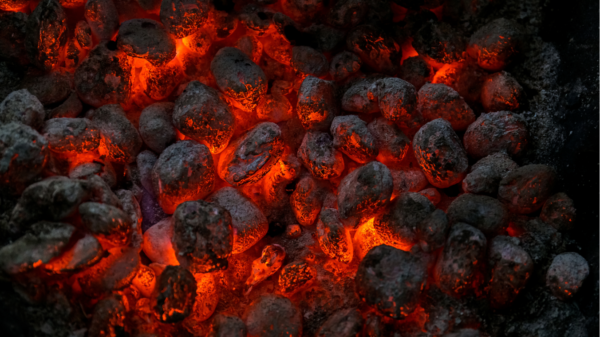-
Calorific Value Comparisons Between European and Namibian Firewood
When it comes to heating your home, the type of firewood you choose can significantly impact both efficiency and cost. In this blog post, we’ll compare the calorific values and densities of European and Namibian firewood, shedding light on why Namibian firewood might be the better choice for those seeking a high-energy, sustainable fuel source. Understanding Calorific Value and Density Calorific value, measured in kilowatt-hours per kilogram (kWhr/kg), is a crucial factor in determining how much energy a type of wood can produce when burned. Higher calorific values mean more heat energy is released per unit of wood, making the fuel more efficient. Density, measured in kilograms per cubic meter…
-
The Green Benefits of Namibian Firewood: Sustainable Solutions for People and the Planet
In an era where environmental sustainability is paramount, the choice of firewood can have significant ecological and social impacts. Namibian firewood, particularly sourced from invasive Acacia species, offers a compelling “green” alternative that benefits both the environment and local communities. Here’s a closer look at how choosing Namibian firewood supports sustainability and uplifts rural communities. Combating Invasive Species Namibia faces a significant challenge with invasive Acacia species that threaten its delicate ecosystems. These invasive plants consume vast amounts of water, a precious resource in a region plagued by low and often unpredictable rainfall. The encroachment of these species has reduced the availability of grazing land, crucial for the livestock that…
-
Acacia Firewood Benefits: A Comparative Analysis of Namibian and European Firewood
When choosing firewood, it’s essential to understand the differences between various types, especially if you’re considering options like imported European firewood versus Namibian firewood. Each type has distinct characteristics that affect burning efficiency, heat output, and environmental impact. In this post, we’ll delve into the benefits of Acacia firewood from Namibia compared to European firewood, and why Namibian firewood might be the superior choice for your heating needs. European Firewood: The Basics European firewood, commonly used across many households, has several drawbacks that can affect its efficiency and environmental footprint. Namibian Firewood: The Superior Choice Namibian firewood, particularly Acacia, offers several benefits that make it a more efficient and environmentally…
-
Benefits of Biochar for Anaerobic Digester Plants
It has long been determined that activated carbon or biochar aids in the production of methane (CH4) and Hydrogen (H2) through the process of anaerobic digestion/degradation of organic matter. This post covers just some of the benefits in layman’s terms to show the economic viability of using biochar as an additive. Firstly, and most economically important is the fact that biochar, through scientific tests has been proven to increase production by 23,5 – 47.1%. It can also increase the quality of methane produced by up to 25%. It does this in various ways: 1) Boosts anaerobic digestion performance. 2) Biochar acts as a carrier to increase microbial abundance. 3) Maintains…
-
Unleashing the Flavours of Namibia: The Story of Namibian Firewood
In the heart of Namibia, where the vast landscapes stretch into the horizon, lies a hidden treasure that ignites not just flames but also a taste of tradition and sustainability. This treasure? Namibian firewood, made from the invasive acacia species of Sekelbos, Swarthaak, and Baster Kameeldoring. Embracing Nature’s Bounty: Namibia’s unique ecosystem presents a paradoxical challenge: invasive species disrupting native flora, particularly grasslands. However, this challenge has birthed an innovative solution. By harnessing these invasive acacia species, we are not only mitigating ecological damage but also delivering a sustainable product. A Taste of Authenticity: Namibian firewood isn’t just about kindling flames; it’s about infusing your barbecue with a distinct taste…
-
Namibian Hardwood Charcoal
A Sustainable Solution to Invasive Acacia and Rural Livelihoods Introduction: In the vast landscapes of Namibia, an unlikely hero emerges from the struggle against invasive acacia species that threaten the delicate balance of the grasslands. Charcoal production from hardwood, specifically from invasive species like sickle bush (sekelbos), blackthorn (swarthaak), and camel-thorn (kameeldoring), not only offers an eco-friendly solution to invasive plant management but also provides a sustainable livelihood for rural communities. This blog post explores the impact of hardwood charcoal production on battling invasive acacia and its positive effects on the rural population. The Invasion of Acacia: Namibia’s grasslands have long been under siege by invasive acacia species, particularly sickle…
-
Benefits of Biochar as Feed and Bedding Supplement for Dairy Farms
Dairy farmers are struggling to make ends meet. The introduction of Biochar to their feedstock and bedding could very well be the key to unlocking profitability and stemming ever-rising costs. Swiss and German farmers have been using the benefits of Biochar for years to increase yield and reduce farming costs. We have a Biochar production capacity of 200 tons per month of high-grade biochar as a feedstock supplement and bedding additive. And our prices are most competitive, making the use of Biochar an economically viable proposition. We have compiled a list of benefits that would increase dairy profits in milk production and decrease farming costs in an attached post. Please…
-
Some of the Benefits of Inoculated Biochar for Agriculture Crops and Horticulture
We are producers and distributers of quality hardwood Biochar.Not only do we produce the best biochar in the UK (others mix softwoods and feedstock in their biochar), but we are also the most competitively priced. Our Biochar comes from invasive acacia species in the southwestern grasslands of Southern Africa. It is crushed and sieved to produce a consistency in dimensions. Our small grain (10mm) is for plant growth. And the larger dimension for feedstock supplements and waste/litter management. We can produce volumes up to 200 tons per month, and as our prices are the most competitive in the market, it makes using our Biochar a very economical soil amendment product.…

















